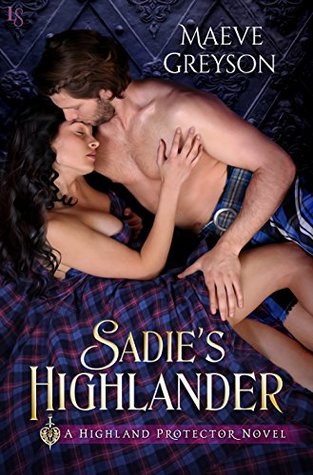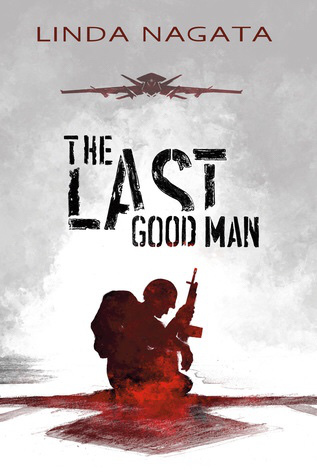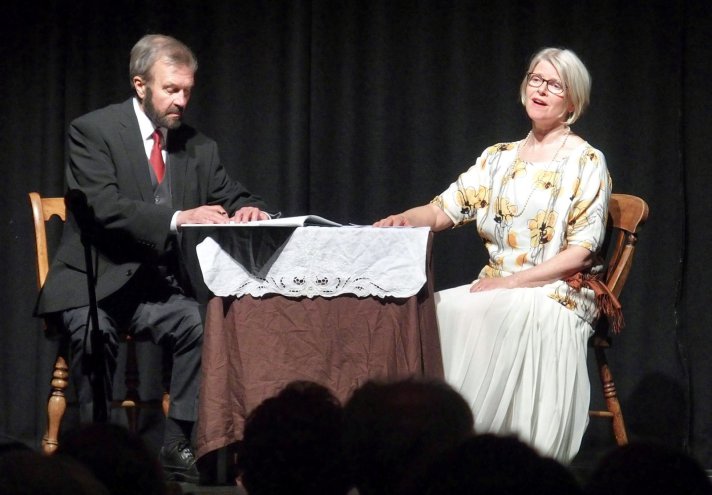
After being booted out of Cornwall in 1917, DH Lawrence was reliant on the generosity of friends to put him up while he got back on his feet. By 1918 he was in such dire poverty that Arnold Bennett secretly gave his agent Pinker £25 as a crisis fund, knowing Lawrence hated charity. It was these circumstances that led Lawrence and his wife Frieda to take residence of Mountain Cottage, Middleton-by-Wirksworth from 2 May 1918. This was the first time the Lawrences had settled in the Midlands for six years, affording him the opportunity to reconnect with family and old neighbours. He lasted one year.
Lawrence’s time in the Midlands is the main focus of Pie and Peas with DH Lawrence, an amateur dramatic performance that sketches out key elements of his life. As you would expect from a production by the Wirksworth Community Theatre, space is given to Lawrence’s time in the surrounding area. Therefore the performance includes the reading of three of his letters to Katherine Mansfield during the brutal winter of 1918. Mansfield was married to the writer and critic John Middleton Murry. The two couples had briefly lived near each other in Cornwall during the war in an early attempt at Rananim, but it didn’t work out. By 1919 Murry was editing the Athenaeum which featured many of the Bloomsbury Group. This should have been an opportunity to rebuild their friendship while, more importantly, generating a bit of income for Lawrence through commissions. Unfortunately it didn’t work out and it would lead to a simmering mistrust between the two that would intensify over time. This wasn’t touched on in the play because it would have over complicated the narrative. Instead we are reminded that Lawrence was a prolific letter writer and who his circle of friends were at the time.
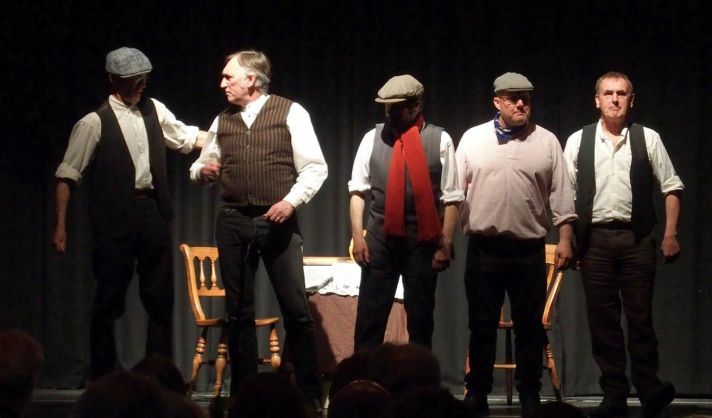
Lawrence’s Wintry Peacock was inspired by his time spent in Derbyshire and is partly performed, whereby a suspicious wife asks a man who can speak French to translate the contents of a letter to her husband. This places the man in an awkward situation as he has to decide whether to tell her the truth or spare her feelings. Given the audience were privy to the contents of the letter, this worked very well on stage.
We were also treated to both the reading of War Baby and the song War Baby by Carol Fieldhouse. This poem, which was originally published in the English Review, coincided with the birth of Catherine Carswell’s son, John, on 30 May 1918. Lawrence dedicated the poem to Carswell’s new offspring.
It was during a brief stay in Ripley that Lawrence wrote two short stories about childhood pets, Rex (dog) and Adolf (rabbit). Adolf is the tale of a mischievous pet rabbit that causes chaos in a family home, leaving droppings on saucers while helping himself to the sugar pot. In performing this, the producers celebrated Lawrence’s love of nature and wildlife and led nicely onto a reading of Snake. It also helped touch on another theme that had been explored in the opening half an hour, Lawrence’s parents.
Lawrence had an indifferent relationship with his father, depicting him as an ignorant brute in his third novel Sons and Lovers (1913). He was very much influenced by his overbearing mother who aspired for more and didn’t want her kids going down the pit. Arthur Lawrence may have been down the pit since he was seven but he was also a very charismatic and caring individual. This is perfectly drawn out in Adolf when the father finds one surviving rabbit from a family of dead rabbits. He brings the one surviving (but unmoving) rabbit home in order to nurture it back to life. Whereas Lydia Lawrence is aghast at the havoc the rabbit causes, Arthur prioritises life. Lawrence realised years later that he’d been overly harsh in his portrayals of his father and this is noted in the play when a young Lawrence announces if he’d written Sons and Lovers when he was older the father would have been presented differently. Thankfully he didn’t.
In addition to life in “the country of my heart” the play also explores the Lady C trial, censorship of his paintings, and his relationship with his German wife Frieda. This means that other elements, such as his savage pilgrimage, are omitted. But this works very well, providing a brief sketch of his life and works that are performed through song, poetry, short stories, plays, comedy, letters, court case recitals, and piano ballads. The cast also take on multiple parts, meaning we have different people playing Lawrence and other key figures. This brings out the ethos of ‘community’ theatre as everybody is effectively the star performer.
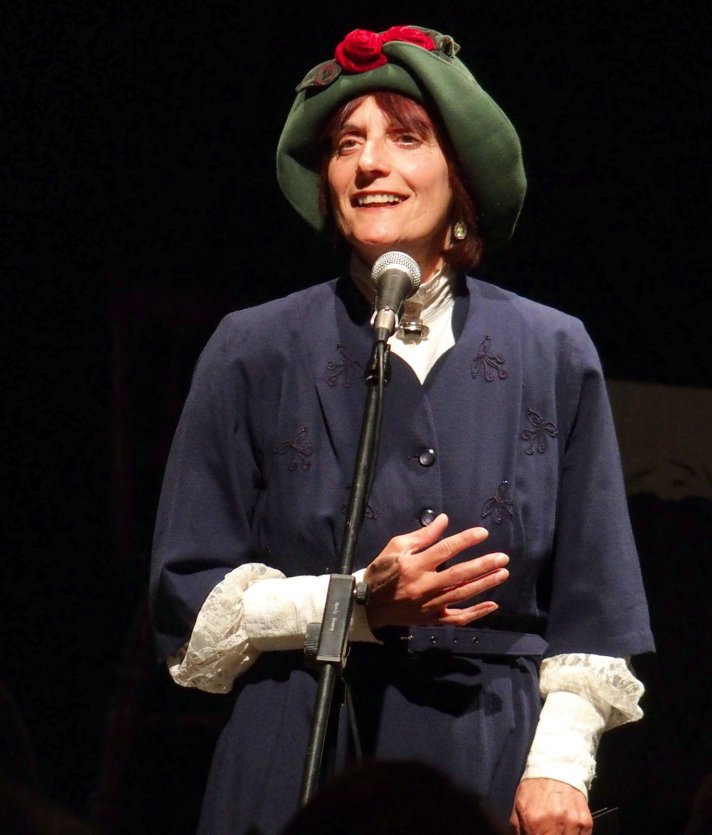 Frieda Lawrence (Marie Paurin)
Frieda Lawrence (Marie Paurin)
However, there are a few standout performances that deserve mentioning. Getting Frieda Lawrence to read out Lawrence’s damning poem The English Are So Nice was a masterstroke. It’s delivered with the right balance of sarcasm and perfectly weighted in delivery to enable the humour to come through: The English are so nice/so awfully nice/they are the nicest people in the world./And what’s more, they’re very nice about being nice/ about your being nice as well!
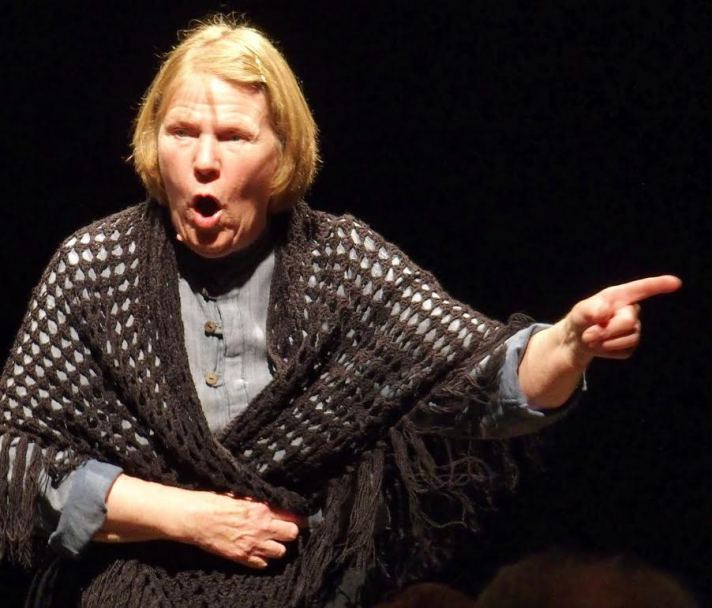 Sue Watts
Sue Watts
A Colllier’s Wife is an incredibly difficult poem to read because of the dialect but Sue Watts was brilliant. She’s like a cross between Ms. Ball-breaker and Nora Batty and delivers this, and other lines, with absolute ferocity. And finally, the gem of the show goes to Andy Miller – a member of the Nottingham Writers’ Studio – for his adapted version of a Monty Python Sketch in which Lawrence and his father switch roles. It was completely unexpected and perfect for getting across the cultural tensions faced by Eastwood’s favourite mard arse.
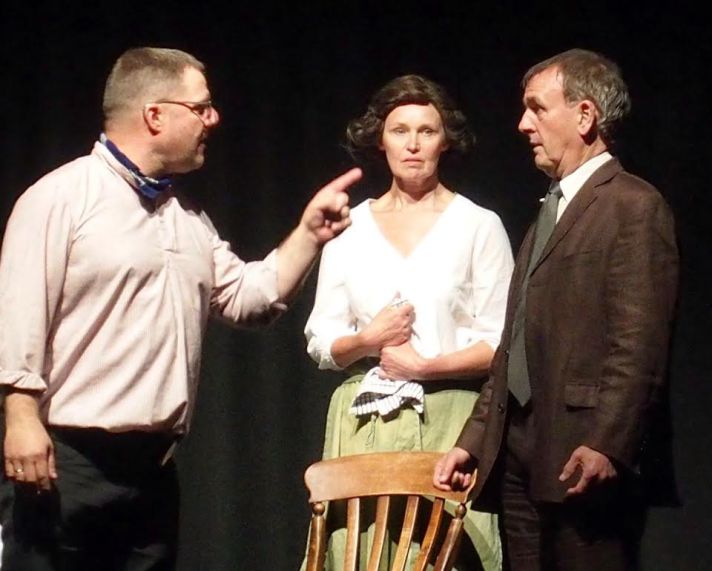 And now for something completely different: Andy Miller (right) as Lawrence switches roles with his father.
And now for something completely different: Andy Miller (right) as Lawrence switches roles with his father.
The play was performed as part of the Little Bit Scruffy Festival at the Grand Pavilion Theatre in Matlock. The Theatre is the largest in the Derbyshire Dales but badly in need of repair and renovation. Lynn Allison, a Trustee, Director and Co Chairman of the charity that owns the building said the purpose of hosting the festival here was “to bring new people into the building to hear our rescue and renovation story; to bring new drama to the area; and to break even”. The Grand Pavilion was built in 1910 but has sustained damage from water over the years. “Because of the condition of the building, we say it is ‘Open – ambitious – and Still a Little Bit Scruffy’ hence the name of the festival.”
Lawrence lived a largely nomadic existence and wasn’t one for materialism. He was renowned for his DIY skills and ‘make do and mend’ attitude, so I’m sure he would approve of his work being celebrated in such shabby, yet homely, surroundings. Just like the rabbit in his short story Adolph, a little love and tenderness is required to help resurrect this old building back to its former glory. But whereas Adolph needed a few sugar cubes, the charity needs a few million. It will be hard slog, but one you can support while being entertained at the same time.
The Little Bit Scruffy Festival runs from 28 May – 2 July and includes other performances and workshops.
RELATED READING
- Little Bit Scruffy Festival (thegrandpavilion.co.uk)
- The Grand Pavilion history (database.theatrestrust.org.uk)
- New Heads Have High Hopes For Pavilion (matlockmercury.co.uk)
- Heritage Lottery bid win (derbyshiretimes.co.uk)
- Adolph by DH Lawrence (fullreads.com)
- Wirksworth Community Theatre (facebook.com)
- Nottinghamshire Dialect in A Collier’s Wife (bl.uk)
- Wirksworth’s Fascinating History (derbytelegraph.co.uk)
- Female mate-guarding in Lawrence’s “Wintry Peacock”: an evolutionary perspective (freepatentsonline.com)
Advertisements Share this, or I will rage!!!
- Share




